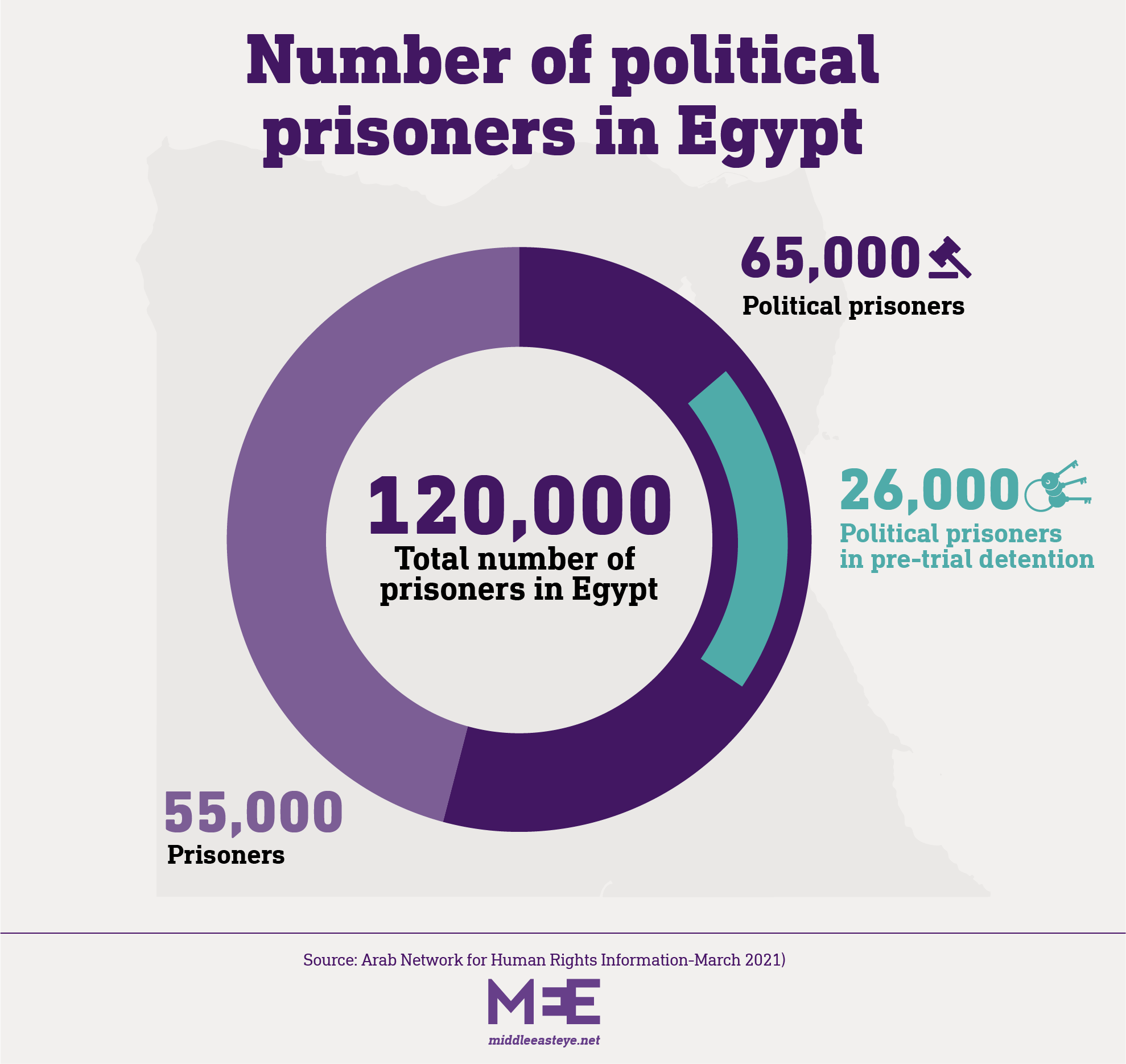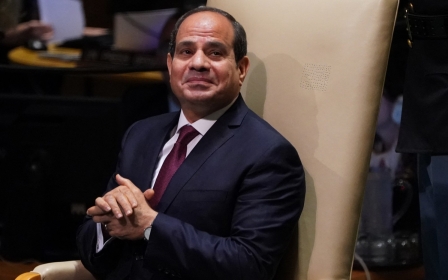Egypt releases 41 political prisoners out of tens of thousands

Egypt on Sunday released 41 political prisoners from pre-trial detention, according to a politician-turned-negotiator.
"Forty-one of those held on remand detention on political charges and (charges related to) freedom of thought and expression" have been released, Mohamed al-Sadat said.
Long a fixture of Egypt's political scene, Sadat is a nephew of former president Anwar al-Sadat and has recently emerged as an unofficial negotiator for political prisoners.
Rights groups estimate that tens of thousands of such prisoners are being held in Egypt.
According to the Arabic Network for Human Rights Information, the total number of prisoners in Egypt in March 2021 was 120,000, with an estimated 65,000 political prisoners - at least 26,000 of them were held in pre-trial detention.
New MEE newsletter: Jerusalem Dispatch
Sign up to get the latest insights and analysis on Israel-Palestine, alongside Turkey Unpacked and other MEE newsletters
Among those freed Sunday, prominent lawyer Khaled Ali told AFP, were journalist Mohamed Salah, researcher Abdo Fayed and activists Walid Shawky, Haitham al-Banna and Hassan al-Barbary.
Activist Radwa Mohamed, who was arrested in 2019 for criticising the regime amid rare protests calling for Sisi's removal from office, was another of those released, according to her lawyer Nabeeh al-Ganadi.
All six were charged with "belonging to a terrorist organisation and spreading false news" – an accusation frequently levelled against dissidents in Egypt.
Shawky had begun a hunger strike in February. Both he and Salah had previously been ordered released before new charges were levied against them - a common tactic used to circumvent Egypt's two-year maximum pretrial detention period, according to rights groups.
More detainees will be released, Sadat hinted, as "legal and humanitarian reviews" will very likely leave some eligible for "presidential pardons" that are conventionally handed down around Eid, set for the first week of May.
In an interview with AFP, Egyptian-Palestinian activist Ramy Shaath, who was released in January, detailed brutal conditions and treatment in prison, describing inmates as "rotting in hell".
This week, four social media comedians were arrested on charges of terrorism and spreading false news for a song posted online that satirised the authorities' failure to rein in rampant inflation.
In November, Human Rights Watch accused the international community of "rewarding repressive rule" by selecting the North African country to host the next climate summit - the COP27, scheduled for November.
Middle East Eye delivers independent and unrivalled coverage and analysis of the Middle East, North Africa and beyond. To learn more about republishing this content and the associated fees, please fill out this form. More about MEE can be found here.





